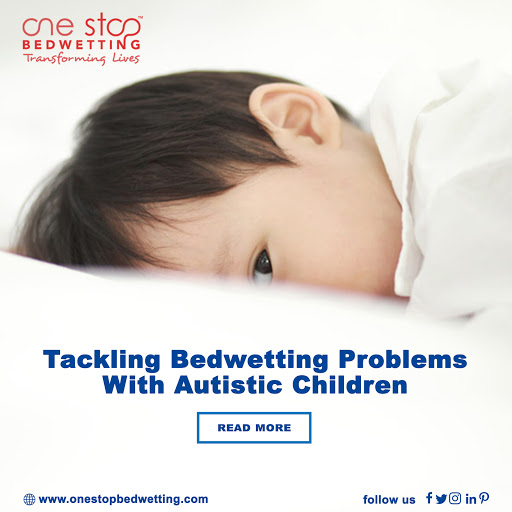Preliminary studies show that bedwetting, also known as nocturnal enuresis, has emerged as a common issue among grown children, especially those children whose ailments fall in the autism spectrum of disorders.
Bedwetting is a typical symptom demonstrating developmental disabilities. While most children transition from toileting aids such as nappies and diapers to “big boy/girl” pants with relative ease, autistic children do not feel the societal nudge to “grow up” in this way, hence making the transition a lot more challenging.
Even though bedwetting issues are common among children on the autism spectrum, there are very few resources available on how to tackle this issue in a gentle yet effective way. You can use bedwetting alarm to solve this issue.
Here we will discuss some common problems autistic children face with toilet training and attempt to solve them.
What thought patterns are causing the problem?
Autistic children do not process instructions the way other children do. If you instruct such a child to “go to the toilet,” they are likely to interpret it literally. They will literally walk into the toilet and come straight out.
Autistic children also have a unique perspective on the world. They feel that if they know they need to pee, then their caregiver should as well. The need to communicate their desire to use the loo is not usually apparent to them.
Sensory difference is an anomaly that most autistic children face. The phenomenon by which the child’s sense organs and body awareness are either hypersensitive or underdeveloped. This has a massive impact on their ability to use the toilet alone.
What can we do to make toilet training easier?
- Start early. There is no medical evidence that the bladder and other excretory organs of autistic children develop slower than that of other children. Hence it is best not to leave training too late since this can create even more impediments to the process.
- Curate the training process to the specific needs of your child. For instance, starting school can be an excellent option for some children but may induce stress reactions in others.
- If your child has developed a habit of smearing their poo, it may be due to the sensory stimulus it gives them. Try replacing this behaviour with other options such as water with cornflower, handkerchiefs with strong odours, stickers, etc. Working with an occupational therapist who can teach your child wiping techniques is also a good option.
- Many autistic children experience painful pooping, constipation, or fear of toilets which causes them to withhold stool for long periods. Working with Cognitive Behavioural Therapy is an excellent way to work around this phobia.
- Use a bedwetting alarm to help with their cues. Tangibly reward successful bathroom visits and morning dryness to reinforce this behaviour.
Toilet training an autistic child is a slow, meticulous process. The critical factor for any caregiver is to be patient and gentle since additional trauma will make the whole process more challenging. Work with your child’s unique cues. Do not shame them in any way and support them as they learn this process.
Read More : Autism: Cause of Bedwetting in Childern



